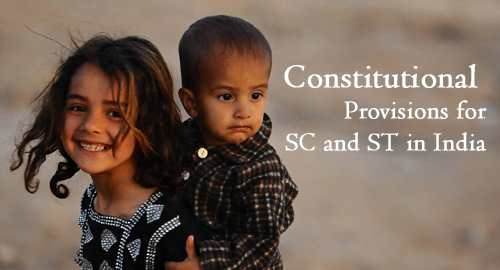[su_box title=”Indian Polity Quiz & Questions” style=”default” box_color=”#2196F3″ title_color=”#FFFFFF” radius=”3″ class=””][su_list icon_color=”#333333″ class=””]
- Preamble And Evolution Of Indian Constitution
- Fundamental Rights (FRs)
- Directive Principles Of State Policy (DPSP)
- Fundamental Duties (FDs)
- Union / Central Government
- State Government
- Constitutional Provisions For SCs And STs, Women, Children, And OBCs
- Emergency Provisions
- Electoral Process
[/su_list][/su_box]
Hello Readers,
We bring you this large list of questions from Preamble And Evolution Of Indian Constitution. This should help you in your preparation of Competitive Exams for Indian Polity.
Constitutional Provisions For SCs And STs, Women, Children And OBCs (Indian Polity Questions)
- Which Article under the Constitution provides for the reservation of SCs and STs in the Lok Sabha? 300
- In which year was ‘untouchability’ abolished in India? 1950
- The following act does not amount to practicing untouchability denying access to a home
- ‘Self-incrimination’ means Compelling a person to be a witness against himself
- The Constitution seeks to protect the interests of the SCs and STs by reserving seats for them in public services, in legislatures
- Indian Constitution guarantees reservation to SCs and STs in Lok Sabha and Legislative Assembly
- Seats for SCs and STs are not reserved in Rajya Sabha
- The Special Officer who looks into the working of the safeguards for SCs and STs is called as Commissioner for SCs and STs
- According to Marriage Act of 1954, the age is fixed at 21 years for men and 18 for women.
- The year 2001 was declared as the year of women empowerment to the promotion of the development of women.
- Who are considered to be the vulnerable group? Women and Children
- In which one of the following States is it constitutionally obligatory for the State to have a separate Minister for Tribal Welfare?
- The reservation for members of SCs and STs has been extended up to 2010
- Extension of reservation to SCs and STs for another 10 years is provided by way of 45th Constitutional Amendment.
- Reservation for the SCs and STs in the Parliament and State Assemblies was extended up to 2010 by the Amendment 79th
- Concept of ‘creamy layer’, propounded by Supreme Court with regard to reservations, refers to economically better-off people
- What is the maximum percentage of jobs that can be reserved by a State for backward class people in the government jobs? 50%
- The Tamil Nadu Reservation Act, which provides for 69% reservation in the jobs and educational institutional in the State, was placed in the Ninth Schedule by the 76th Amendment
- Which Article provides for the National Commission of SCs / STs? 338 / 338A
- The National Commission for SCs and STs has to submit an Annual report to the President
- Which Article of the Indian Constitution empowers the President to appoint a Commission to investigate the conditions of backward classes in general and suggest ameliorative measures? 342
- Certain seats shall be reserved for the SCs and STs in Lok Sabha on the basis of their Population
- Minority Groups are recognized on the basis of their Population
- Special provisions relating to the Minorities are guaranteed under the Part XVI
- Jobs are reserved for SC and ST people both at the time of appointment and promotion
- The Mandal Commission for backward classes was set up in 1978
- Which is the Commission appointed by the Government of India to investigate the conditions of socially and educationally backward classes of the society? Mandal
- Which of the following Prime Minister was in favour of implementation of the recommendation of the Mandal Commission? V. P. Singh
- Who is empowered to nominate Anglo-Indian Community to Lok Sabha / Legislative Assembly? President / Governor
- How many members will be nominated by President / Governor from Anglo-Indian Community? 2 / 1
- In which one of the following States there is no reservation for the SCs for Lok Sabha? Jammu & Kashmir
- Under the Provisions of which Article of the Constitution, the Government abolished the practice of untouchability? 17

